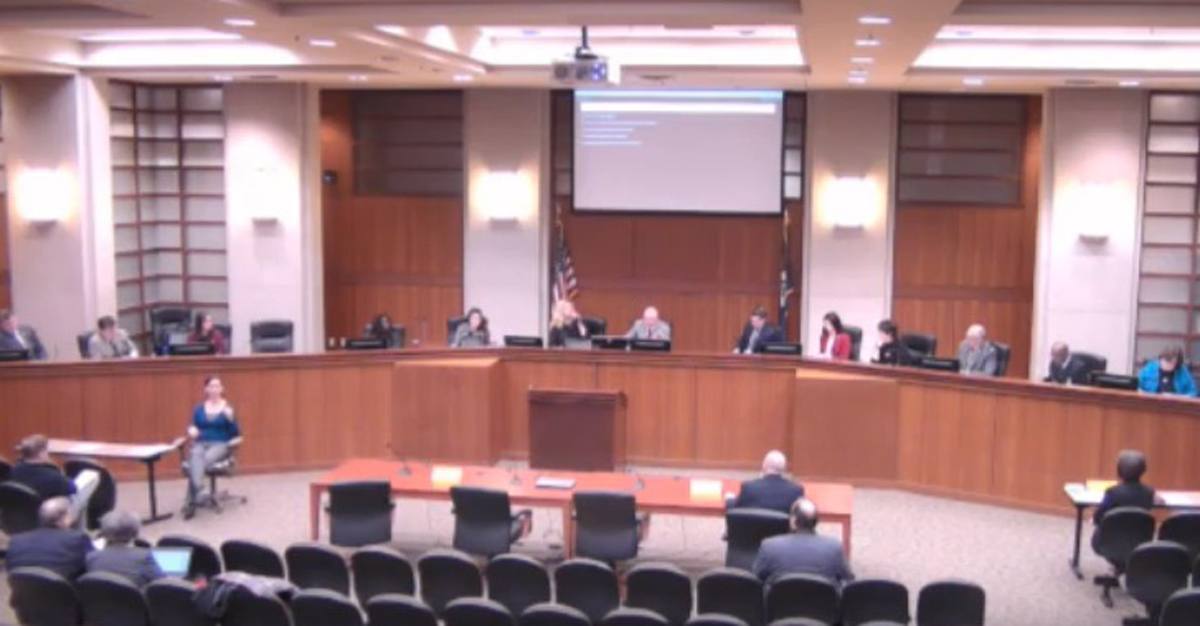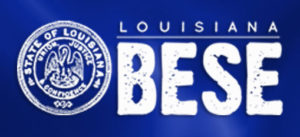

Today, I earned the distinction of being the first person to ever petition the Board of Elementary and Secondary Education to consider a rule change. BESE president, Dr. Gary Jones, joked that because I was the first to attempt to navigate the process, they would put my name on a plaque and hang it in the hall. Then he added that it might come down, if I got too active with petitions.
The petition process began way back in April, or May, of last year. I received a phone call from a teacher in one of the northern parishes who wanted to share her evaluation experience with me.
She went on to explain that in her Fall observation with an assistant principal serving as her supervisor, she had received a 3.9 rating; her highest ever. As is policy, the “highly effective” rating meant that she would not undergo a Spring observation. During the first week of April, she received an unexpected and unannounced observation by the school principal. On that particular day, she was reteaching a lesson, but had not amended her lesson plan, and just minutes before the principal entered the room, she had learned that her husband was being laid off from work.
She knew the observation didn’t go well, and when she tried to meet with him, he rejected her explanation and plea for a do over. She received a 2.0 rating making her overall average 2.95, and while she still received an “effective” rating, the drop in rating meant she would only receive a $500 merit bonus, instead of $1500.
She went on to explain that she felt certain that the principal did that in retaliation for some remarks that she made about professional learning communities (PLC) and professional development (PD). She reached out to me after her professional organization told her they couldn’t help her, and she wanted to know if I thought it was legal.
After reviewing the statute regarding teacher evaluations, and then comparing it to the policy that had been established by BESE, I discovered that while the statute is clear that the observation portion of a teacher’s evaluation is to be at an agreed upon time, the BESE policy stated that a teacher must be evaluated twice with “at least one” being announced. As you can see in my brief summary, there is much uncertainty about the interchangeability of “evaluation,” and “observation.”

And so, I began the long arduous task of trying to find out how to fix a rule (policy) when it doesn’t comport with statute. I can tell you that it was a difficult task to find someone in Baton Rouge who knew the process. After first reading the Administrative Procedures Act (APA), and the promulgation process, and coming up empty, I reached out to the Division of Administration. Again, after bouncing from person to person, nobody seemed to know.
This went on for a couple of months. In late September, I reached out to the wonderful staff of the Louisiana Senate. Within a matter of days, they pointed me to the statute, policy, and procedure. In addition, they directed me to the person at LDOE who should be able to help me. When I emailed him, he was confused at first, then he pointed me to the Rulemaking Docket for BESE. As it turned out, due to a law passed in the 2018 regular session, a new BESE rule to establish the process was undergoing final approval and would be effective November 1, 2018. I marked the date on my calendar, and then when November arrived, I asked BESE Executive Director, Shan Davis, for the process. A few days later, I submitted my petition. You can CLICK HERE to read my petition, and CLICK HERE to read LDOE’s response to my petition. In addition, you can read my presentation by CLICKING HERE.
In short, BESE denied my petition to change the rule; however, it was clear that the discussion regarding the matter was a obfuscation of the statute and the policy. What is also clear is that a majority of BESE is completely unaware of what the evaluation process entails, and even after repeated explanations, can’t discern between an evaluation plan, evaluation process, and observation. To me, just witnessing the discussing provides a basis for the need to clarify the policy, and intent of the statute. In addition, anyone reading this should be aware that no attorney employed by an elected board will ever tell that board they can’t do something they want to do. They will always justify it.
Nonetheless, the outcome was exactly what I expected. What should I expect from an elected board that has no urgency to appoint a superintendent because there aren’t enough votes to reappoint the current superintendent? Fortunately, the process doesn’t end there. Petitioning BESE, and being denied, is only the first step.


Gary, thank you so much for taking this on. We have long held that LA Statute and BESE rules are in conflict. There was a time that Caddo performed a pre-observation conference for every observation. That stopped when BESE sent their emissary around the state saying only one must comply with the pre-observation conference. I wrote John White and actually visited our BESE member regarding this. As I remember it, it always went back to a local decision and the local district would always punt it back to the Bulletin.
Thanks, Jackie. The requirement was taken out of the original bill, but later added back in, along with 52 other amendments. I spoke to both Rep. Hoffman, and Steve Monaghan. Neither could speak to that specific amendment, but said that all of the amendments were the result of many, many meetings and agreements. It’s clear that the intent is to obscure the law.
How is it that some people are only getting observed once per year others ate getting observed twice every year? Just $500? In our neck of the woods its only $200 for a highly effective teacher. So much is wrong with this whole process!!! I agree, can’t expect much from a board that can’t do the right thing when it comes to John White.
Well, that illustrates another problem. Basing pay on merit puts poorer districts at a disadvantage when they can’t pay larger stipends.
$200? Highly effective teachers in my neck of the woods get a whopping $0.